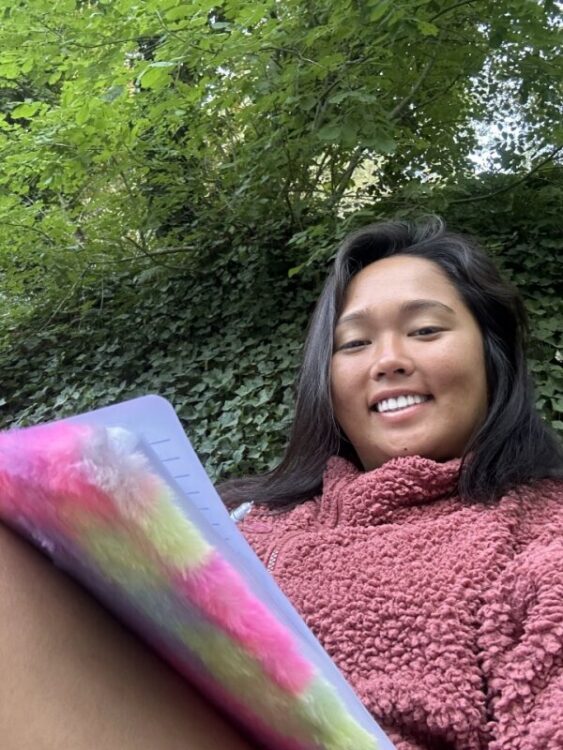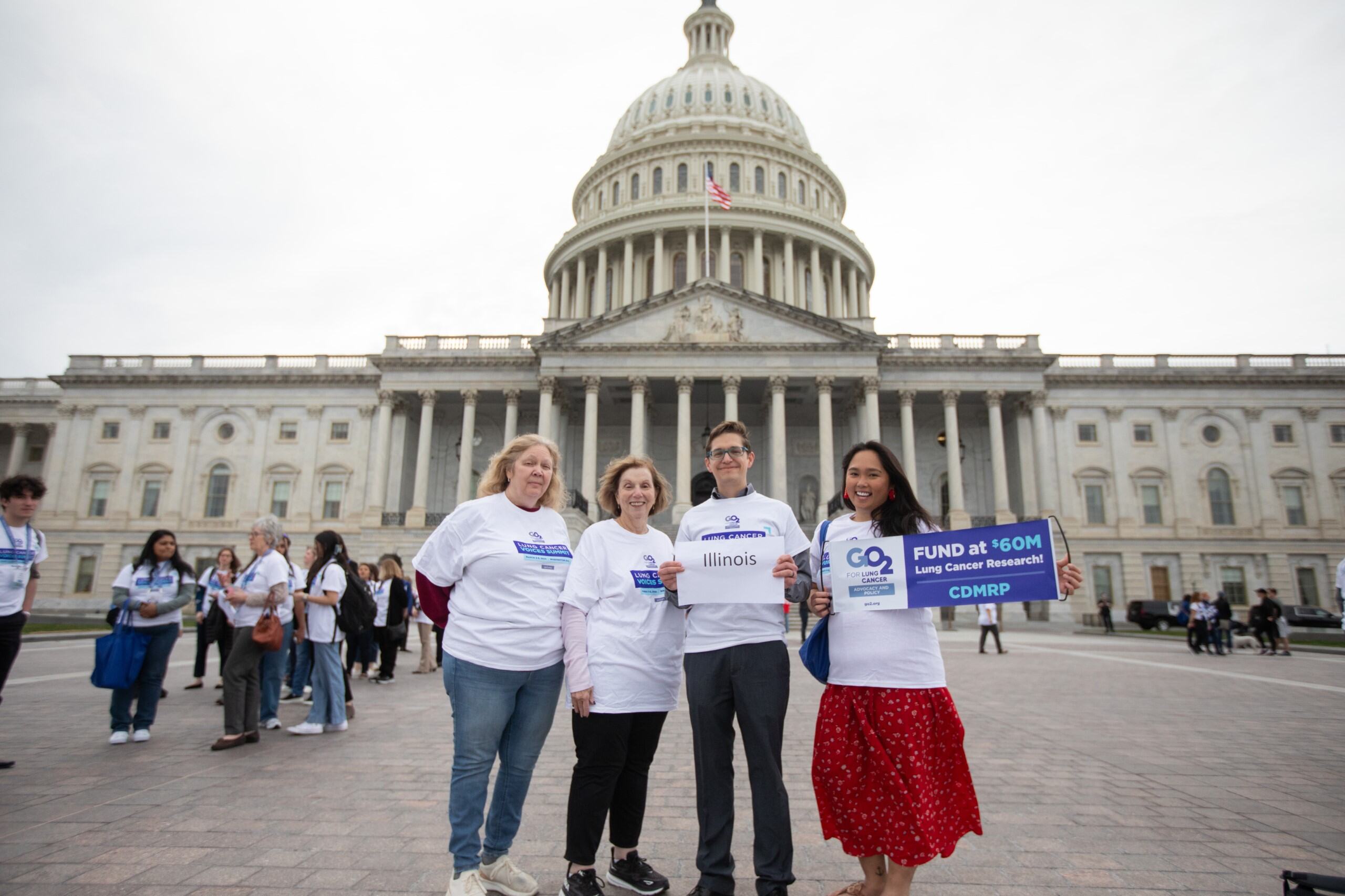Aurora was diagnosed with stage 3 (III) EGFR lung cancer in 2021 when she was 28 years old. Having immigrated from the Philippines, her doctors thought that she had tuberculosis or an infection. Given her young age, her doctor struggled to accept lung cancer as a possibility. Her challenges navigating the healthcare system inspired her to become an advocate for others with the disease. We chatted with Aurora about her experience attending the 2024 Lung Cancer Voices Summit.
Tell us about your lung cancer diagnosis.

In August 2021, a few days after buying my first home, I began having chest pains. I was teaching as a high school learning specialist in Chicago with a cough that would not disappear. I could not walk around and give lectures, and it was impacting my job.
I went to see my primary care physician, and within the first 5 minutes of my appointment, he said, “You are fine. Boil some water and add honey to it.” But I knew something was wrong.
After my primary care physician dismissed me, I went to the emergency room a few weeks later. There, they did a CT scan and X-ray, where they saw a nodule on my lung and detected a heart condition. I needed a bunch of tests but came across so many barriers—insurance delays, incorrect orders from my HMO plan, and my doctor denying ordering me a PET scan for 2 months.
I knew something was wrong with my body. Before being able to have access to my diagnosis, there was a point I couldn’t even walk. It took 3 months to get all the tests, and finally, in December 2021, I received my diagnosis.
The hardest part of my lung cancer journey was the fight to get the proper tests and diagnosis. I continue to hear about doctors dismissing young people for years. The system needs to change, but I am hoping more people are empowered so that we can advocate for ourselves and others.
What was your experience at the Voices Summit?
The most memorable and inspiring part of the Voices Summit was meeting a 20-year survivor. I looked at her in awe, thinking, “How have you been doing this for 20 years?” It was powerful to be a newer patient advocate and meet someone who is a veteran advocate. A 20-year survivor and a young person coming together to share the importance of funding lung cancer research has a significant impact.
I enjoyed learning about the policies we advocate for to impact people with lung cancer. I felt prepared to discuss the legislation and the funding needs, and it was helpful to have the app to learn about the policies.

Why is it important for young people to advocate for lung cancer?
Advocacy is essential to me because it battles inequity. I suffered from a delayed diagnosis due to my health insurance and doctors not knowing that young people could have lung cancer. I advocate because lung cancer in young adults needs to be visible.
We need to break down the stigma that lung cancer only impacts older people and educate policymakers and healthcare providers. They were surprised to hear that young people with no smoking history can get lung cancer.
Is there anything else you would like to share?
It is important for me to keep advocating, even though sometimes it gets tiring. I have learned that Asian American women like me, who have no smoking history, are being diagnosed at alarming rates. This population is not eligible for lung cancer screenings under the current guidelines, which is why we need to educate and raise awareness.
Register today for the 2025 Voices Summit, March 9-11, in Washington D.C.

Leave A Comment